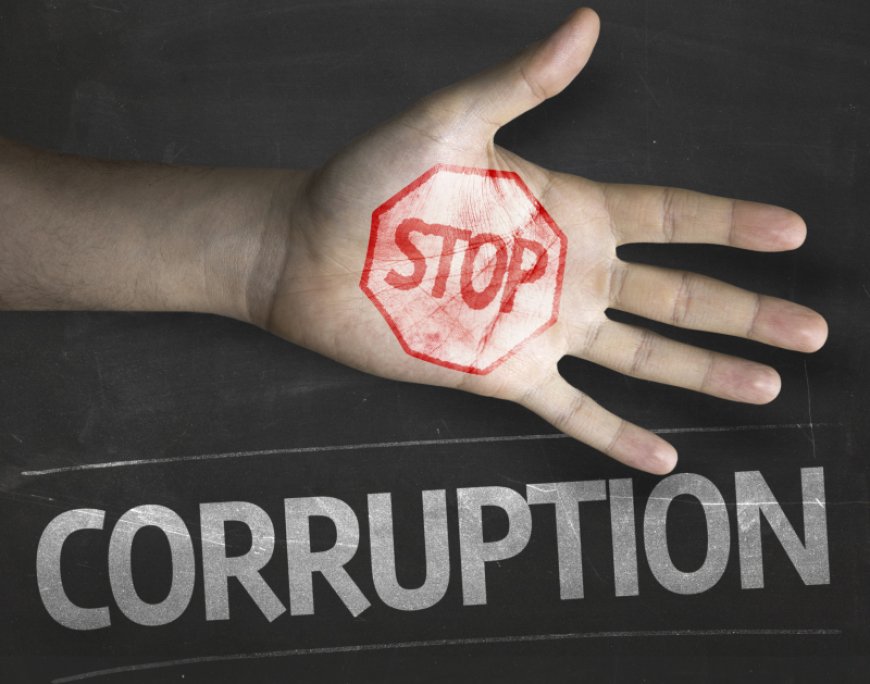Symptoms of corruption
This article explores strategies for treating the symptoms of corruption, emphasizing the essential roles of transparency, stronger regulations, citizen engagement, and investigative journalism in combating the issue. It highlights the importance of fostering a culture of integrity and international cooperation to create a more accountable society. Ultimately, the article advocates for comprehensive solutions that can effectively address corruption and restore trust in governance.

Treating the Symptoms of Corruption: Solutions for a Corruption-Free Society
Introduction
While the tricks of corruption can be disheartening, addressing and treating its symptoms is paramount to rebuilding trust and fostering a healthy democratic society. Effective solutions to curb corruption not only require top-down reforms but also grassroots involvement and public awareness. This article discusses various strategies to combat corruption, emphasizing the importance of transparency, civic engagement, and the empowerment of investigative journalism.

The Role of Transparency in Fighting Corruption
A fundamental strategy to combat and treat corruption is promoting transparency in all government actions. When the public can access information concerning government spending, decision-making processes, and public contracts, it becomes exceedingly difficult for corrupt actors to engage in fraudulent activities. Countries like Sweden and New Zealand serve as examples, where transparency initiatives have significantly diminished the scope of corruption.
Implementing Stronger Regulations and Oversight
To treat the symptoms of corruption effectively, it’s essential to implement robust regulations that enhance accountability. Establishing independent oversight bodies tasked with monitoring public officials and expenditure can lead to significant reductions in corrupt practices. These institutions should be given the authority and resources to investigate allegations, apply sanctions, and recommend reforms without political interference.
The Empowerment of Civil Society and Citizen Engagement
Civil society organizations play an essential role in holding corrupt officials accountable. By actively engaging citizens in dialogue through community forums and advocacy campaigns, civil society can mobilize public sentiment against corruption. Educated citizens aware of their rights and roles are empowered to demand transparency and accountability, leading to a more engaged and informed electorate.
Fostering a Culture of Integrity
To treat corruption effectively, there must be a cultural shift toward integrity and ethics. Incorporating civic education that emphasizes these values into school curriculums can create a generation more resistant to temptations of corruption. By fostering a culture of integrity from a young age, societies can instill behaviors that challenge the acceptance of corrupt practices as a means to an end.
The Role of Investigative Journalism
Investigative journalism serves as a critical watchdog that illuminates the dark corners of corruption. Journalists expose wrongdoing and inform the public about systemic flaws and corrupt actors. Training and supporting investigative journalists, particularly in challenging environments, can amplify their impact on society. Collaborative investigations that span across media outlets can increase the reach of these efforts.
International Cooperation Against Corruption
Corruption does not recognize borders, and neither should the fight against it. International cooperation, through treaties and agreements aimed at combating corruption, can help build global standards for accountability. Sharing best practices, implementing cross-border investigations, and providing technical assistance to countries struggling with corruption can create a concerted effort toward a more corruption-free world.
Conclusion
Combating corruption requires a multi-faceted approach that emphasizes transparency, accountability, and civic engagement. By treating the symptoms of corruption with systemic reforms, a culture of integrity, and empowering investigative journalism, societies can create resilient systems that reject the deception inherent in corrupt practices. As citizens and institutions collaborate to dismantle the structures of corruption, they pave the way for a more equitable and just future.
What's Your Reaction?














































































































